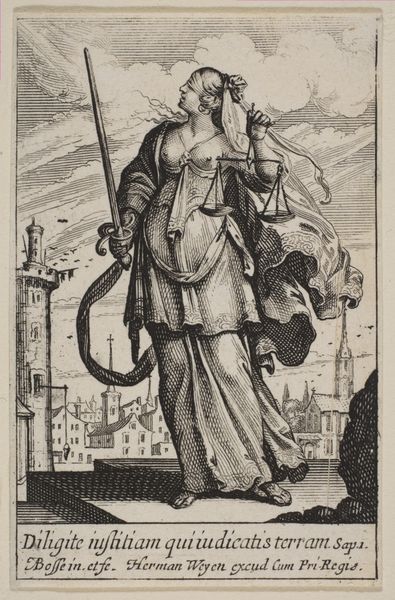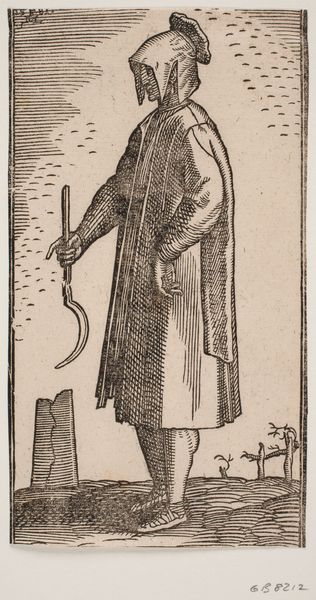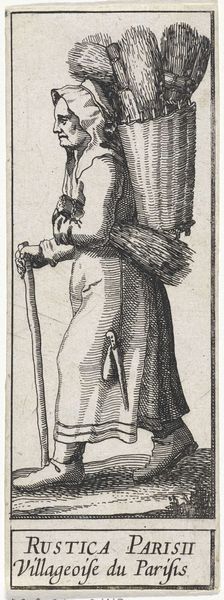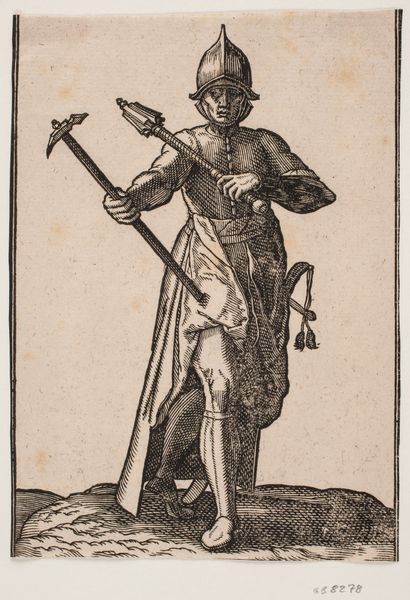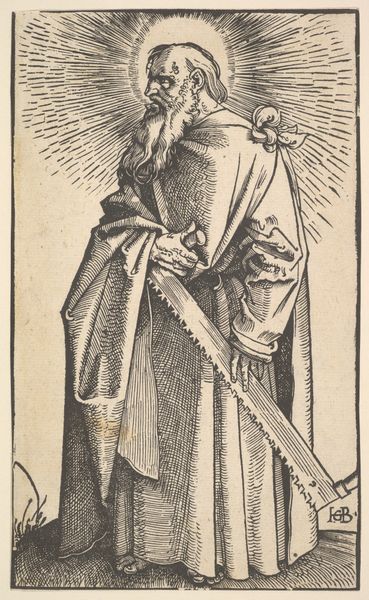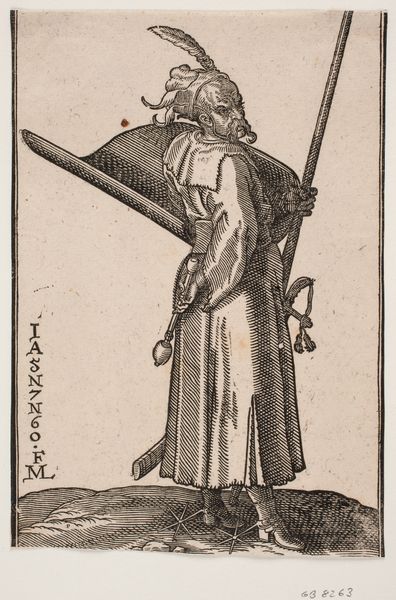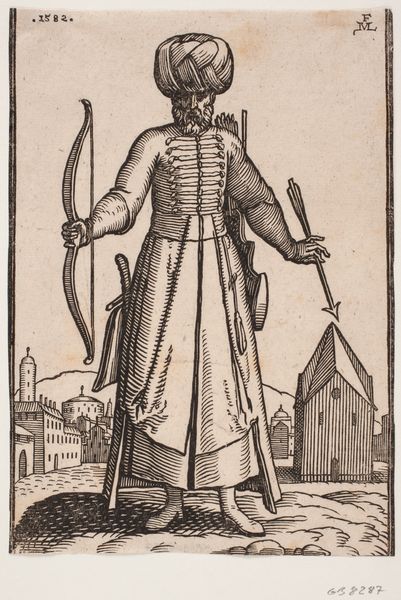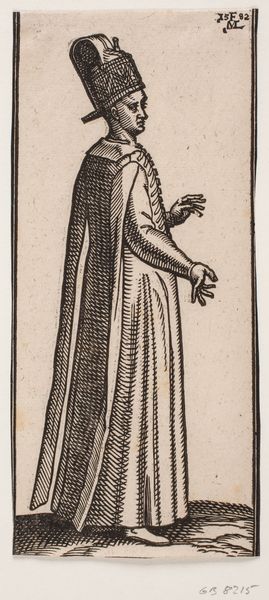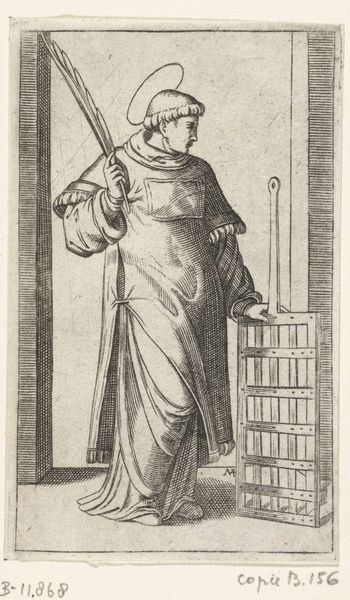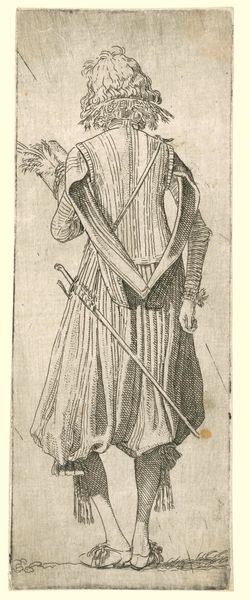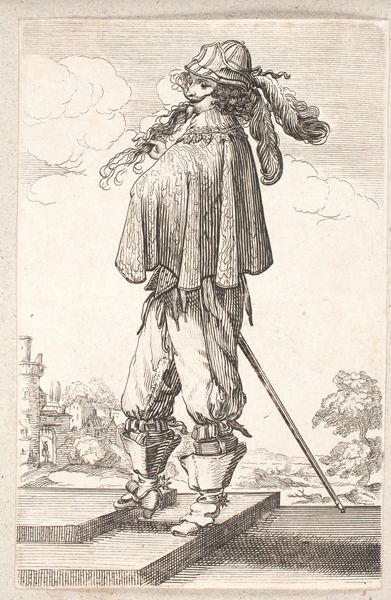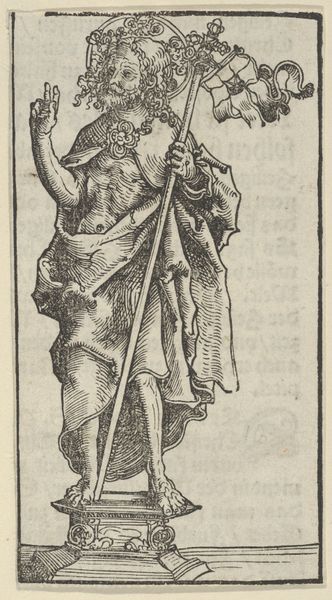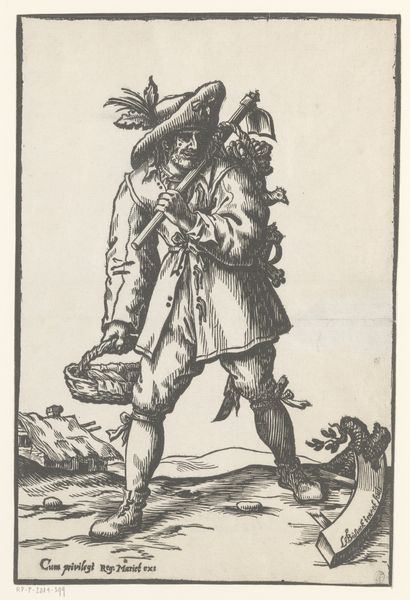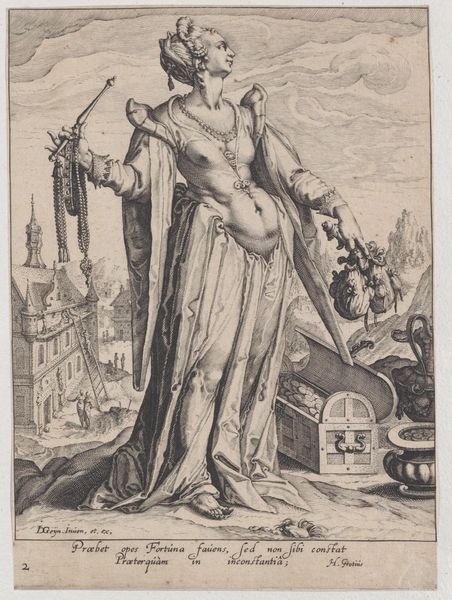
print, woodcut
#
portrait
# print
#
mannerism
#
figuration
#
woodcut
#
line
Dimensions: 197 mm (height) x 109 mm (width) (bladmaal)
Editor: So, here we have Melchior Lorck's "A Scoundrel Seen from Behind," a woodcut from 1581. I find it fascinating how a simple print can portray such a...powerful stance, despite showing us only the back view. The figure's posture exudes a certain arrogance or defiance. How do you interpret this work? Curator: It's a potent image, isn’t it? Consider the historical moment. Lorck, known for his travels and astute observations, creates this "scoundrel." Who gets to define that term? Whose power is threatened by this figure? He's armed, certainly, perhaps a mercenary, but look closer. This isn’t necessarily a celebration of strength. Is Lorck subtly critiquing the violence of the era, or perhaps the shifting power dynamics between the Ottoman Empire, where Lorck spent time, and Europe? Editor: So, it's not just about the individual but about the social and political landscape? The man's outfit appears Eastern, and it doesn’t exactly scream "European royalty"... Curator: Precisely! The turban, the shield, the weapons...these all speak to an engagement with, or perhaps an anxiety about, the "Other." What narratives were circulating in Europe about those from different lands? How did those stories inform, or perhaps distort, perceptions and fuel political actions? Does Lorck intend to subvert this through the ‘scoundrel’ title, or to reinforce it? Editor: That makes me see it completely differently. I was focusing on the pose and missing the wider implications. Curator: And what of the fact we only see him from the back? What are we being denied, and why? It encourages speculation, it invites the viewer to complete the narrative and reflect upon their own potential biases and presumptions of other cultures. It’s fascinating how a seemingly simple portrait can reveal such a complex web of identity, power, and representation. Editor: I’m definitely going to think more critically about the subject and the historical context from now on. Curator: Exactly. Art becomes a mirror reflecting back the dominant discourses of a society.
Comments
No comments
Be the first to comment and join the conversation on the ultimate creative platform.
